Select Committees, a crucial part of the lawmaking process, have become more accessible to the public because of Zoom online video conferencing.
While the MPs who chair select committees say there’s nothing quite like having leading public officials in the room with them when they need to be grilled, they acknowledge Zoom as quite the leveller for many submitters and members themselves.
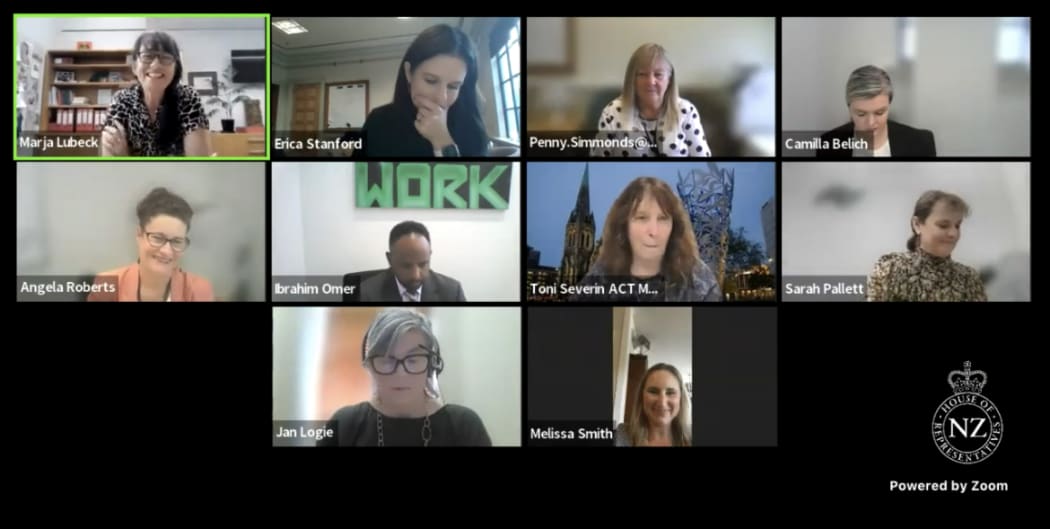
Parliament's Education and Workforce Committee in Zoom meeting Photo: Supplied
Select committees are where the public can express views on legislation and issues being considered by MPs, and members can hold government and officials to account.
Since the pandemic began, committee meetings have been done largely by Zoom, creating a new landscape for how select committees function, and a new set of challenges for the MPs who chair these committees.
Eugenie Sage of the Green Party, who heads the Environment Committee, said access to Zoom had enabled people to present their submissions much more easily.
“We heard a lot of submissions - there were over 3,000 submissions on the Inquiry into the Natural Built Environments Bill Exposure Draft, and over 300 submitters presented. All of that was done by Zoom,” she said.
“There’s a major advantage because it means people don’t have to travel - so reduced emissions - and it makes it more efficient time-wise, both for the committee and for members of the public.
“You do lose a bit of that feel of people being in the room, but it meant we were able to hear from a lot of people in a relatively short amount of time. ”
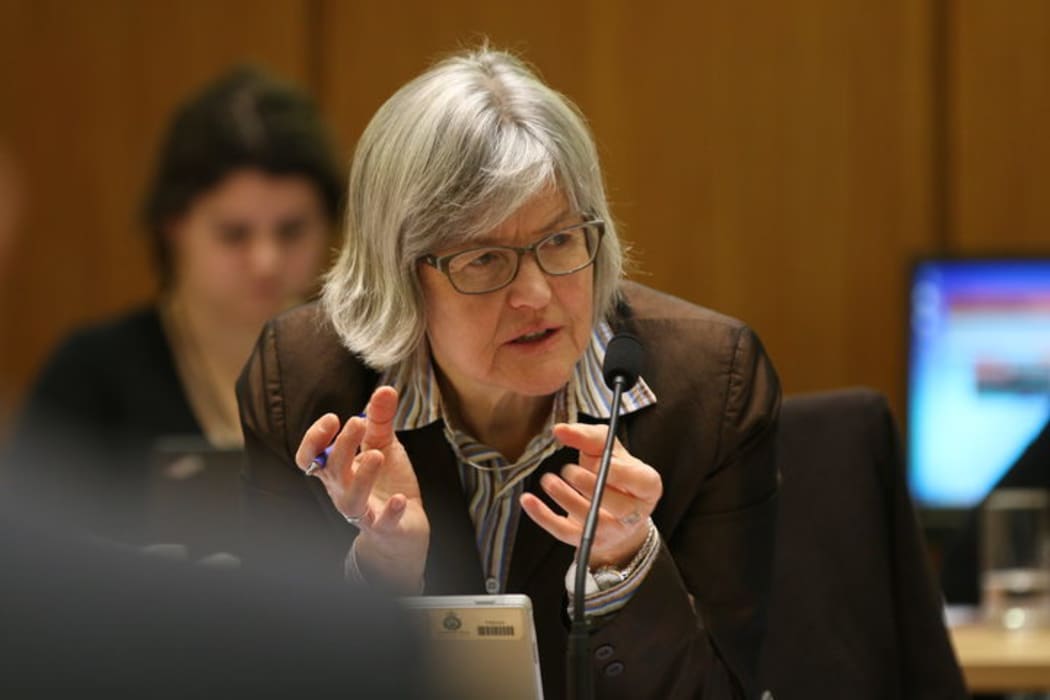
Eugenie Page speaks during an in-person select committee meeting Photo: VNP / Phil Smith
Zoom brings a certain flatness to an exchange. Those awkward moments when someone has started talking but they're still on mute can be humbling and disarming. We can see it for ourselves on those sessions which are public, live-streamed off each select committee’s webpage.
“Interchanges don’t flow freely, you don’t pick up gesticulations and expressions,” said Duncan Webb, the chair of the Finance and Expenditure Committee, the biggest of Parliament’s committees.
“If you’re in the room and you’ve got a submitter, the submitter can see who is engaged and who is not, and just see those kind of micro expressions, the nods and the raise of the eyebrows, those sorts of things - which can be encouraging or not. I think it’s important for submitters to see what’s going on around them if they choose to come and be in parliament in person.”
Chairing by Zoom requires a few new tools, and for Social Services and Community Committee chair Angie Warren-Clark the change wasn’t without teething problems. When the first lockdown came, she had problems with her vision as she was recovering from eye surgery, leaving her struggling to see things clearly while she navigated committee meetings through a laptop.
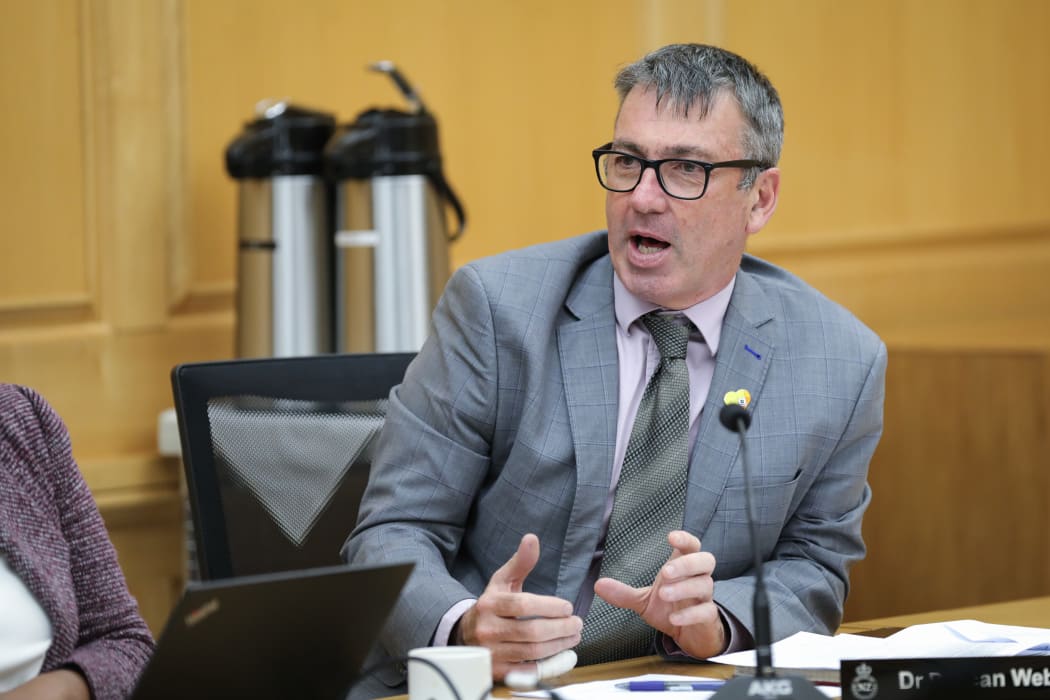
Labour MP Duncan Webb in Parliament's powerful Privileges Committee Photo: ©VNP / Phil Smith
Now she has a two-screen system that most of the committee chairs use - this helps her manage proceedings better - plus a system where members raise two hands when they want to ask a supplementary question.
“So it’s trying to find some adaptations, and recognising some people can’t get in at times. Submitters might not be able to connect, or they can’t be on screen and talking, and all that sort of stuff. So it’s a roving feast, and so anything can come at you.”
Referee
The role of select committee chair, striving to be impartial and give people a fair chance to speak, is sometimes likened to that of a referee.
As the referee, some moments in the game will test you, for example the experience of Education and Workforce Committee chair Marja Lubeck while chairing a recent committee hearing attended by officials from Immigration and the Ministry of Business, Innovation and Employment. When National MP Erica Stanford vigorously sought more time for her supplementary questions on the issue of investor visas Lubeck had the challenge of accommodating Stanford’s keen interest in the issue while juggling the need to keep to time and not eat into other members’ allocations, as the MP asked for one more question and got in several before the chair could finally be heard to restore order over the digital din.
“That’s when Zoom becomes challenging,” Lubeck admitted.
“You’re a bit like Mr Speaker. You can call your members to order. But doing that over the internet is different from sitting around the table and looking someone in the eye and saying ‘you’ve had your turn, we’ll go to someone else next’.
“People can just ignore you and keep talking, so it’s a little bit more difficult.
“But as a chair I guess you just have to make sure you give someone a fair run, but also make sure that, if someone has a particular passion for that topic, it doesn't mean that they need to occupy the whole space. Others need to have a go as well. So it’s just a bit like playing referee.”
Defuser
Work in Select Committees is quite different to work in Parliament's legislative chamber - in the committee's workaday rhythms, MPs from across the political divide work reasonably collaboratively. But, as Duncan Webb puts it, the committee is still essentially a microcosm of what goes on in parliament.
“If you’ve got a contentious item of business and people are yelling at each other and getting het up, it’s a lot easier to defuse on Zoom, because arguing is quite hard on Zoom. It just doesn’t flow as easily as it does freely in the room, and it just sounds like chaos because of the relatively primitive system being used,” he said.
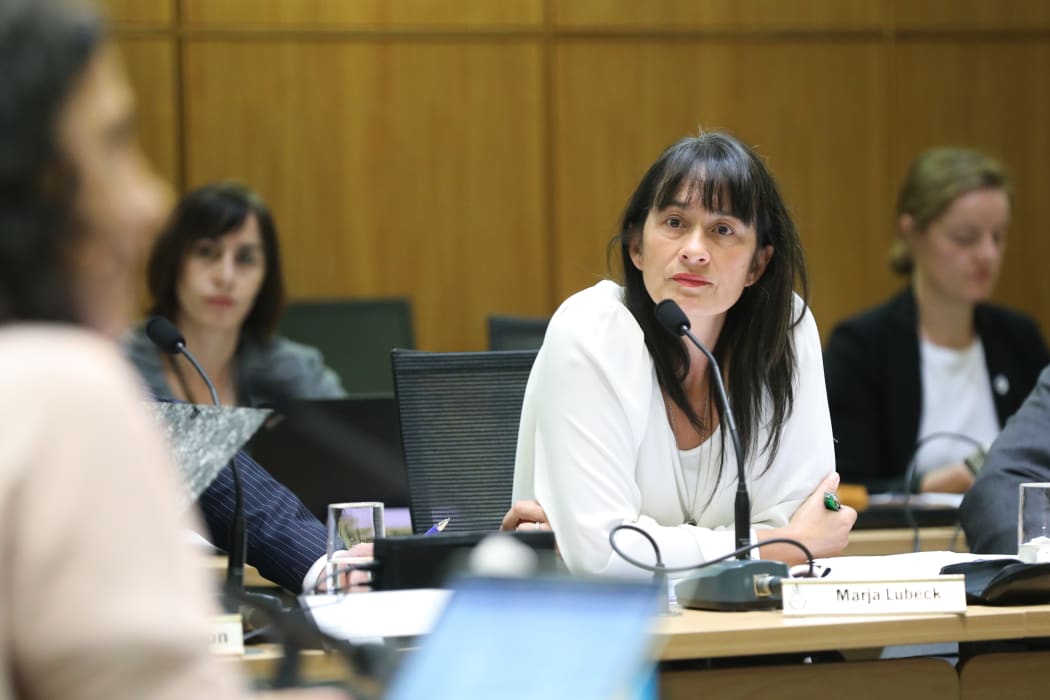
Labour MP Marja Lubeck in Select Committee Photo: VNP / Phil Smith
If arguing is harder on Zoom, sometimes everything can feel hard on it too.
“There’s a lot more concentration, and I think all members feel that after hours of Zoom calls, that that can be quite draining,” said Eugenie Sage.
“We make sure we have a few five-minute breaks. But it’s easier doing it all Zoom rather than doing a hybrid with some on Zoom and some in the room.
“There’s been an awful lot of support in terms of technical assistance by parliament to make the Zoom calls work,” not to mention the work of clerks who work behind the scenes to keep the process functional, and organise submitters to participate.
Accessibility
According to Angie Warren-Clark, Zoom is helping make the Parliament more approachable for members of the public, which is something she said Parliamentary Services and MPs have been working hard to achieve.
“I think it has increased participation for the community. You don’t have to come to parliament now to submit, and I think that’s a good thing. And I also feel it probably feels a bit safer now, you can chat from your own room.”
Both she and Webb indicate that the days of in-person select committees during weeks when parliament is not sitting, and when MPs aren’t generally in Wellington, are probably over.
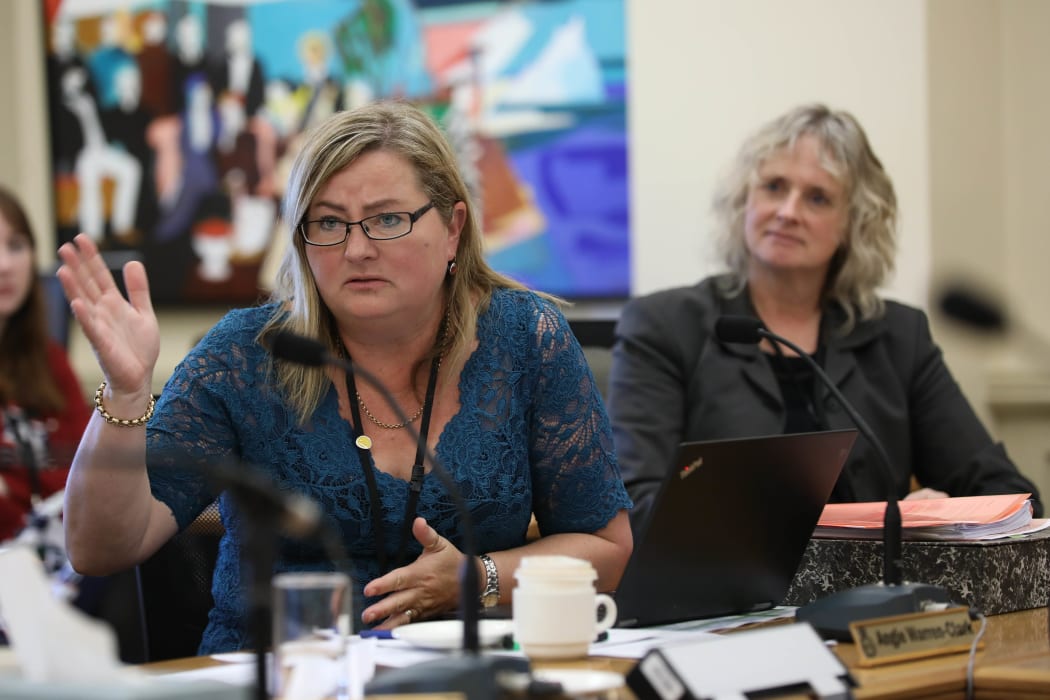
Labour MP Angie Warren-Clark in select committee Photo: VNP / Phil Smith
“When we’re meeting outside of sitting weeks, in the past we would have flown down to Wellington to be in the room, and I don’t think we’ll ever go back to that. If you think about it, that’s a lot of people flying in for what could be a 2-hour meeting. It’s so much more efficient to do it this way. Zoom offers a better choice around connectivity,” Warren-Clark said.
Webb said that meeting in person with the officials in the room remained an ideal way to do the job that they had to do, "which is to really interrogate legislation and government activity", but he accepts that Zoom has its place.
A sometimes clunky process, lacking in nuance compared to in-person experience, doing select committees by Zoom is nonetheless rather a good leveller that improves overall accessibility of the public to Parliament.

